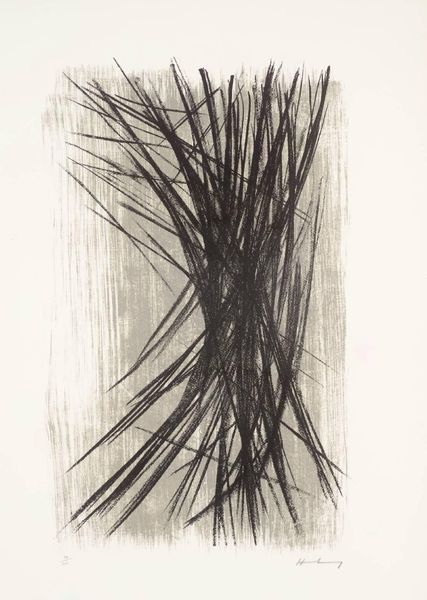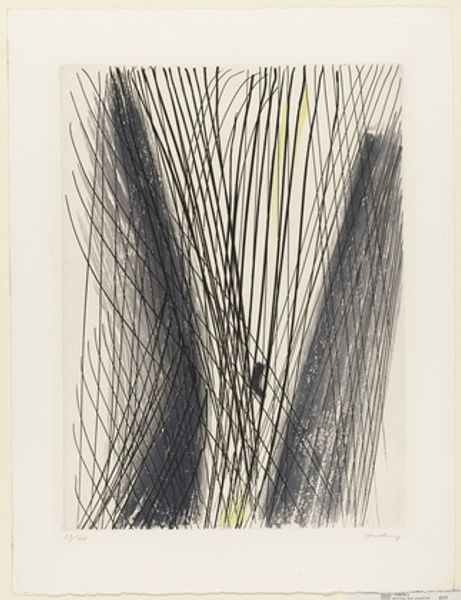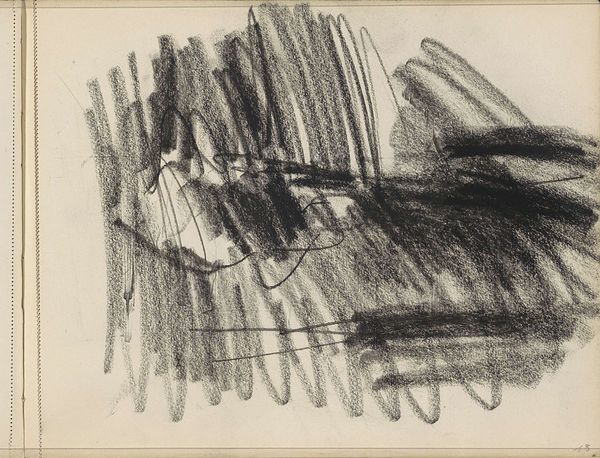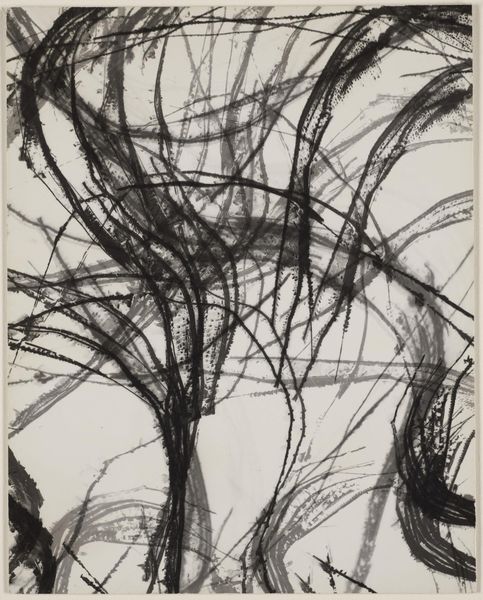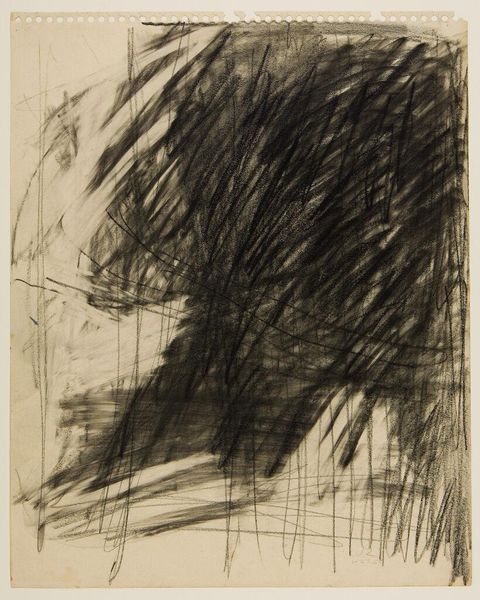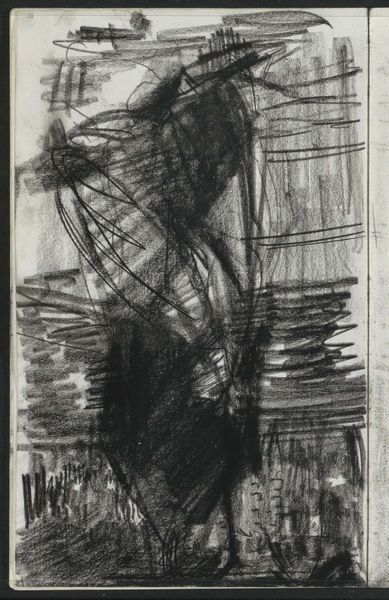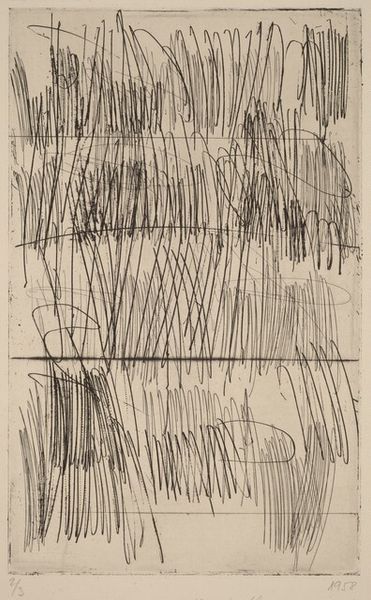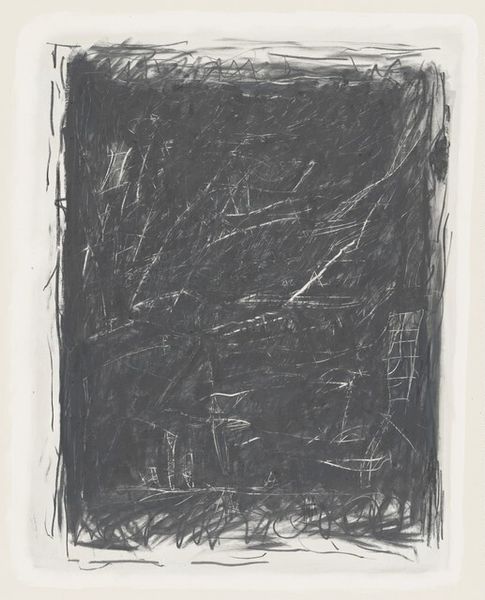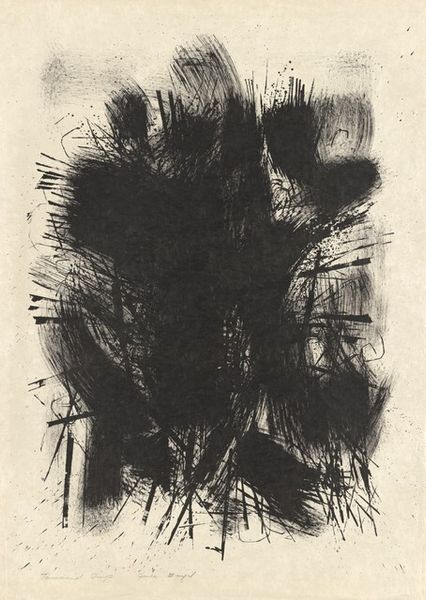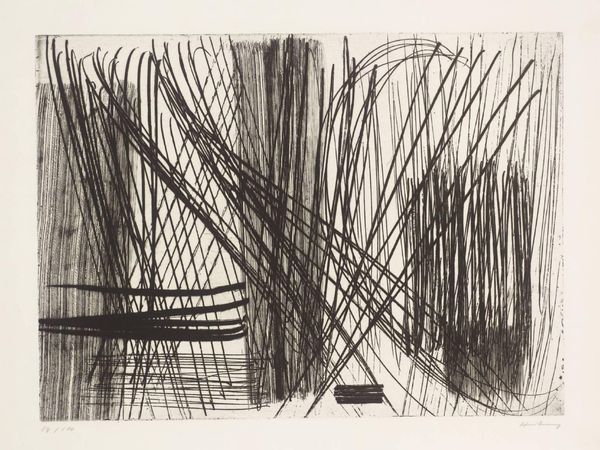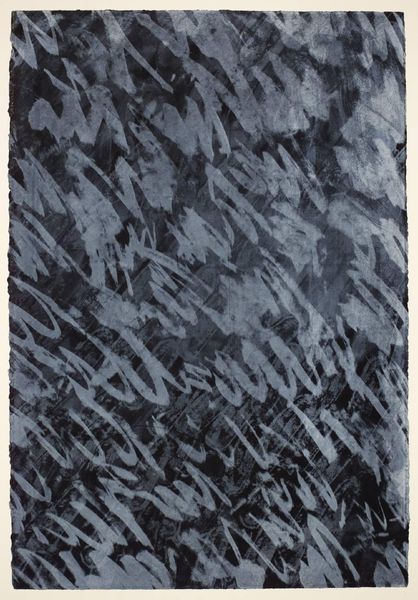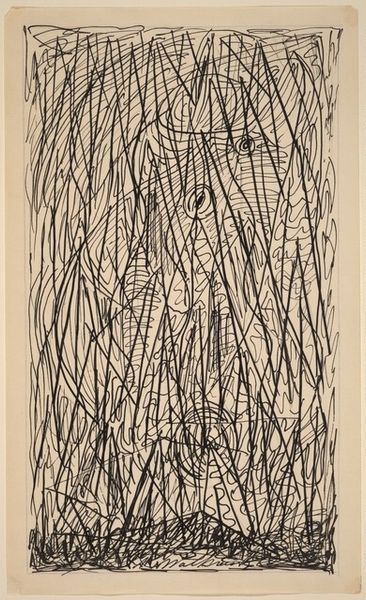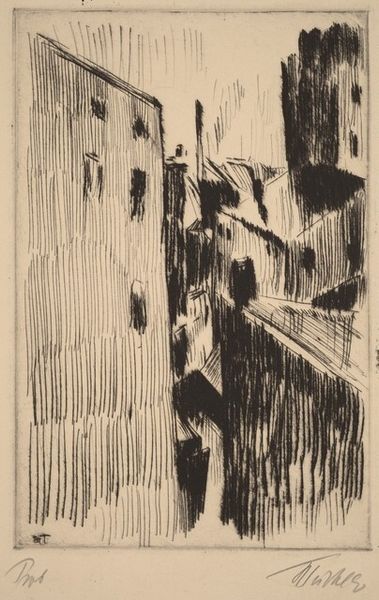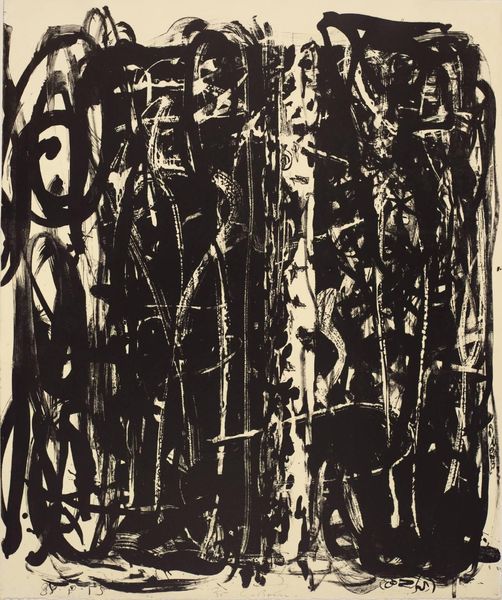
Dimensions: image: 501 x 320 mm
Copyright: © The estate of Hans Hartung | CC-BY-NC-ND 4.0 DEED, Photo: Tate
Editor: Hans Hartung's "L36" is a compelling print, with stark black lines slashing across a muted green background. The energy feels almost violent, but also strangely contained. What do you see in this piece? Curator: The lines, like calligraphy, suggest a hidden language. Notice how they cluster and diverge—do they evoke a feeling of confinement or liberation? Hartung often explored the psychological weight of abstraction, hinting at repressed emotions seeking release. Editor: That makes sense. The density of the lines definitely creates a sense of pressure, almost like something’s about to burst. Curator: Precisely. The use of black, a color often associated with mourning or the unknown, further amplifies this feeling of unease, inviting us to confront our own hidden anxieties. Editor: I hadn't considered the psychological implications so deeply. Thanks, it gives me a lot to think about.
Comments
Join the conversation
Join millions of artists and users on Artera today and experience the ultimate creative platform.
tate 9 months ago
⋮
Hartung was acknowledged as one of the leading abstract painters in Paris after the Second World War. His prints relate closely to the thousands of brush and ink drawings that he made in 1953-6. Dynamic compositions emerge from clusters of lines tracing repeated gestures. Hartung believed that these forms were comparable to those in the natural world. He wrote: 'Our organic knowledge, whether it is of the flow of blood or of the force which is in a growing stem, finds its parallel, its equivalent, in what we create.' Gallery label, September 2004
